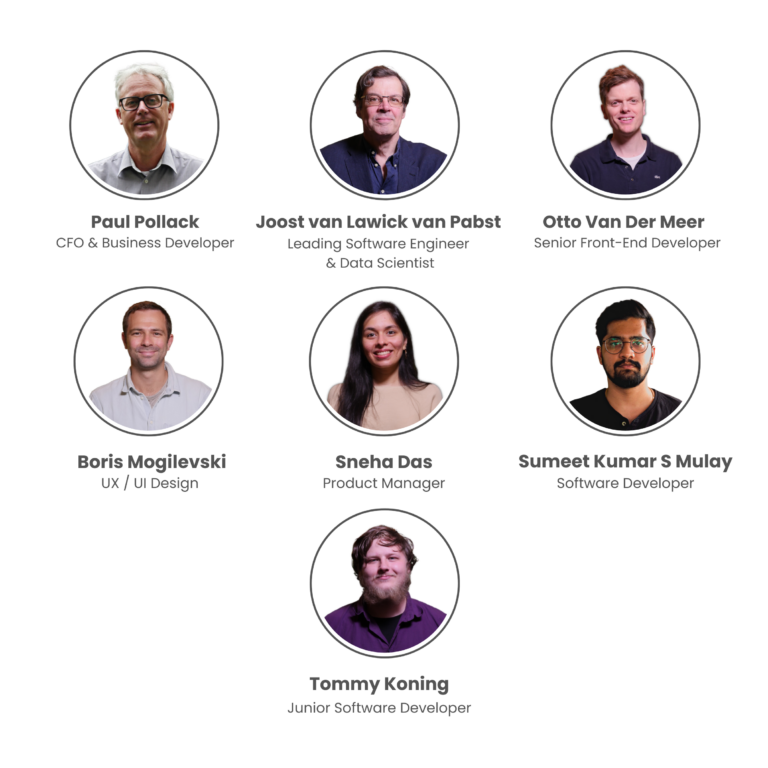This website uses cookies so that we can provide you with the best user experience possible. Cookie information is stored in your browser and performs functions such as recognising you when you return to our website and helping our team to understand which sections of the website you find most interesting and useful.
ABOUT US
We are a technological
innovation hub.

What we do
Inpaqt specializes in delivering AI-powered Decision Support Systems designed to assist in making intricate decisions within dynamic environments, spanning areas such as Business Analytics (including Customer analytics and HR Analytics) and Medical Diagnostics. Our platforms seamlessly integrate four distinct learning curves: machine learning, experiential learning, organizational learning, and scientific experimentation, collectively known as Hyperlearning.
To enable this, we foster collaborations within a diverse ecosystem of partners, ranging from scientific research groups and consultants to market players. Within this ecosystem, Inpaqt serves as the central hub for technological innovation.
Vision of our founder ,Felix Janszen
We are in the ‘Age of innovation ‘. Examples are the emergence of smart industry or industry 4.0 and smart cities fueled by digitization and digital transformation. Entire sectors are disrupted by disruption of production and value chains and disruptive business models that have become possible through the application of new technologies. Think of the travel industry that has been turned upside down by the booking.com, the taxi industry by Uber, the hotel industry by AirBNB . In our vision, digital transformation requires an organization
to manage combined innovation in the following areas : technology, process, business model, social and control or management. Speed of learning is one of the most important core competencies here. By supporting the management of organizations with smart decision-making processes and tools in
various areas, we help companies to learn quickly and to be effective and efficient in the digital transformation.


Felix Janszen-Director and Founder
Felix Janszen founded Inpaqt in 2001 to bridge the gap between
scientific theory and business practice. He is Emeritus Professor of Management of Technology and Innovation at the Erasmus University Rotterdam (1990-2009). He has many years of experience in the R&D of Dutch multinationals. He was co-founder of 2 biotech companies.
He studied biochemistry (dr.), business economics (BEc.) and mathematics.

History
Inpaqt was founded in 2001 by prof. dr. Felix Janszen. As a professor in the Management of Innovation and Technology, he wanted to test theories about innovation management. While he
had a background in experimental sciences such as biochemistry and pharmacology he also wanted to test the theories in practice. For that reason, he decided to make mind mapping tools
for stakeholder pain and gain analysis and for developing customer value propositions with groups of customers, marketers, developers , and people from operations. These experiments proved that the start hypothesis was wrong, but that the tools improved the communication between the various groups who were using the same words but did not understand each other properly. Since then the tools have been extended with numerous other tools and used in hundreds of start-ups to large corporations such as Shell, Unilever, DSM, almost all dutch banks, SMEs, start-ups, ministries such as the ministry of economic affairs, Administration of cities, etc.
Whereas the software was server-client based in 2012 it was decided to make it cloud-based and made it a SAAS (Software as a Service) application. In 2015 it was decided to make it more data-driven by supporting it with Machine learning. From the beginning, it was clear that the underlying Artificial Intelligent (AI) models must not stay black boxes, but the logic had to be understood by the users. Whereas AI models make use of statistics, to know which of the correlations between cause-effect were also causal relations it was needed to be able to apply to the experiment. For that reason, it was decided to use Bayesian Statistics. At this moment the IMS SAAS solution supports the process of innovation, transformation CQ
the transition of organizations and communities including change management based on a learning loop including (re)diagnosis, identifying bottlenecks and weak points, generating, selecting and applying solutions and continuous monitoring of progress whereby the management has all the right stakeholders involved from the beginning till the end.

